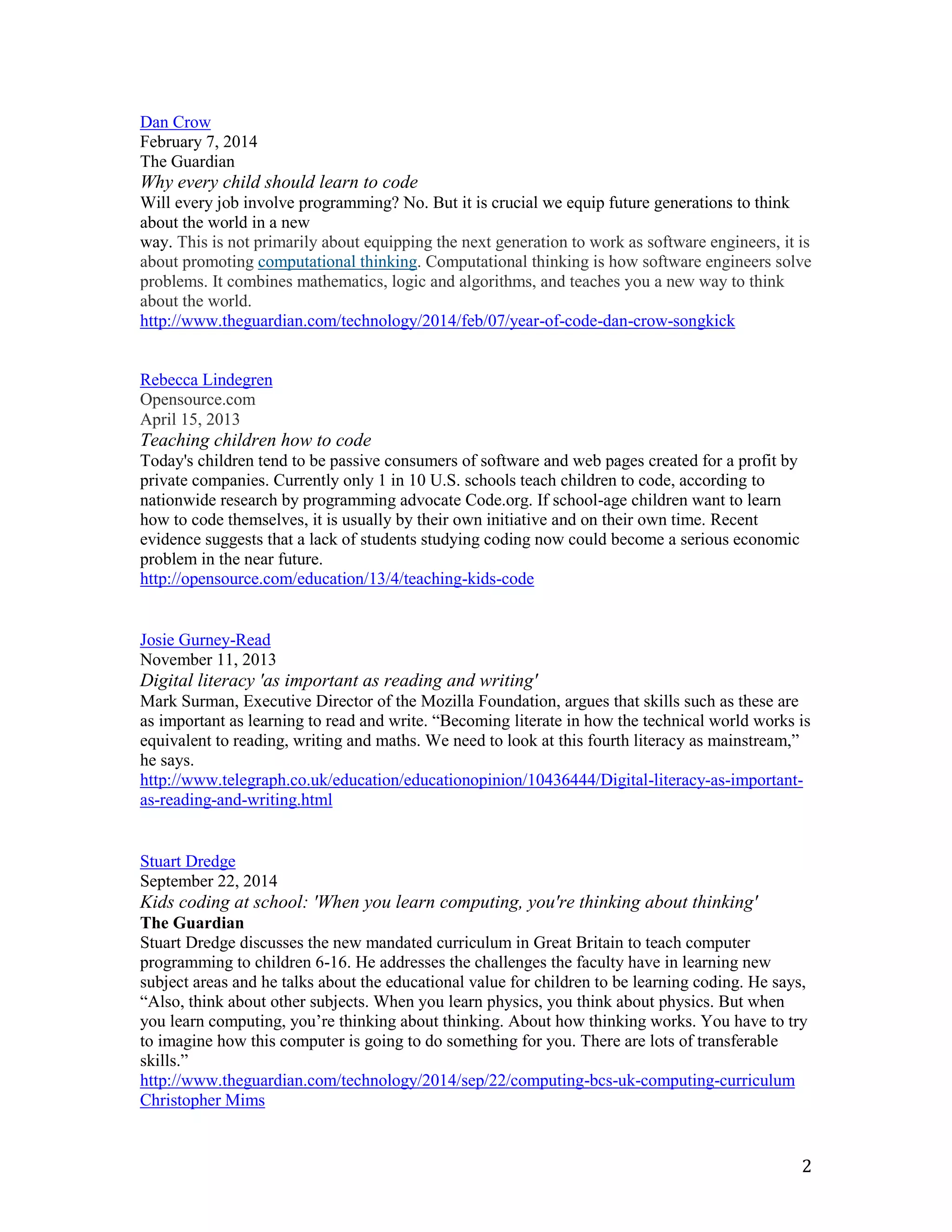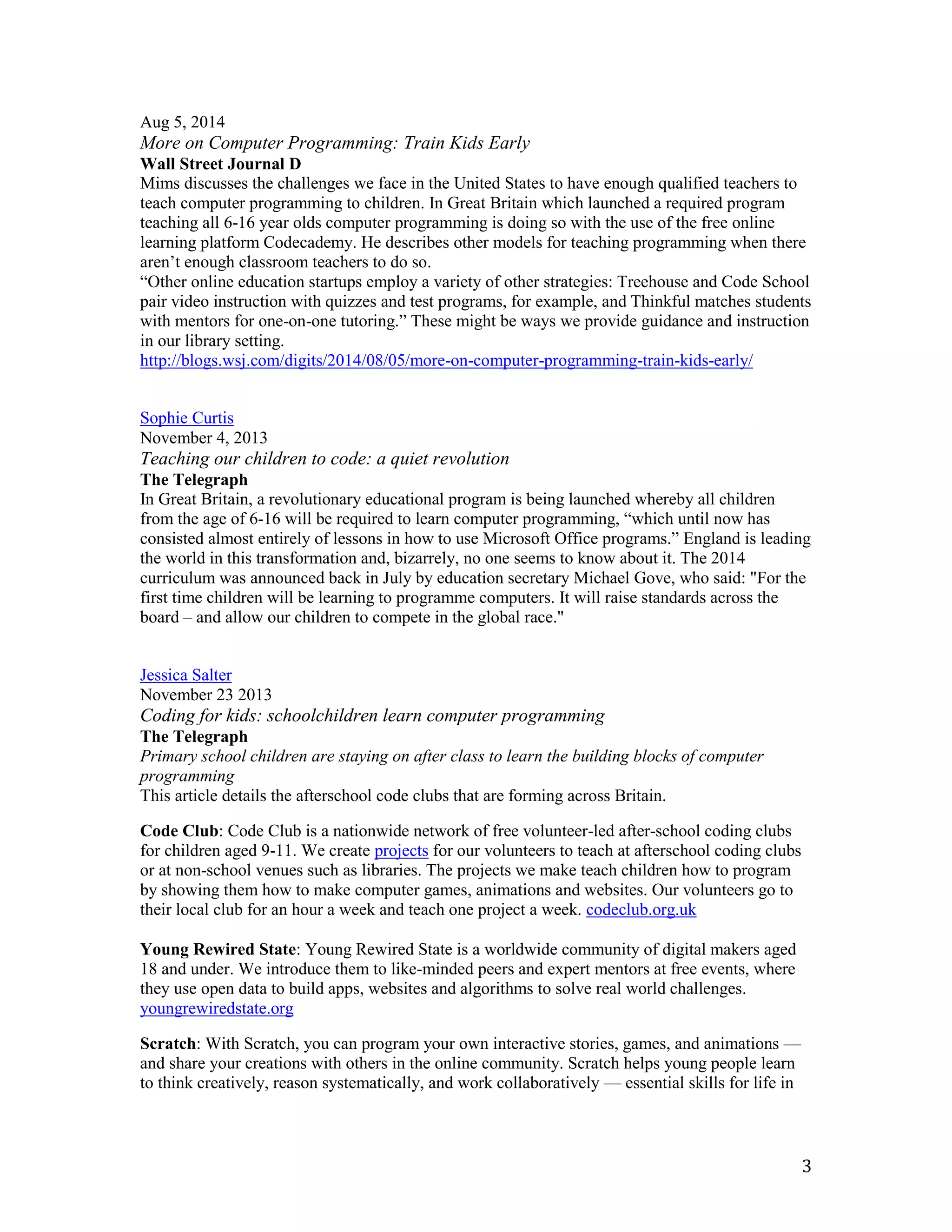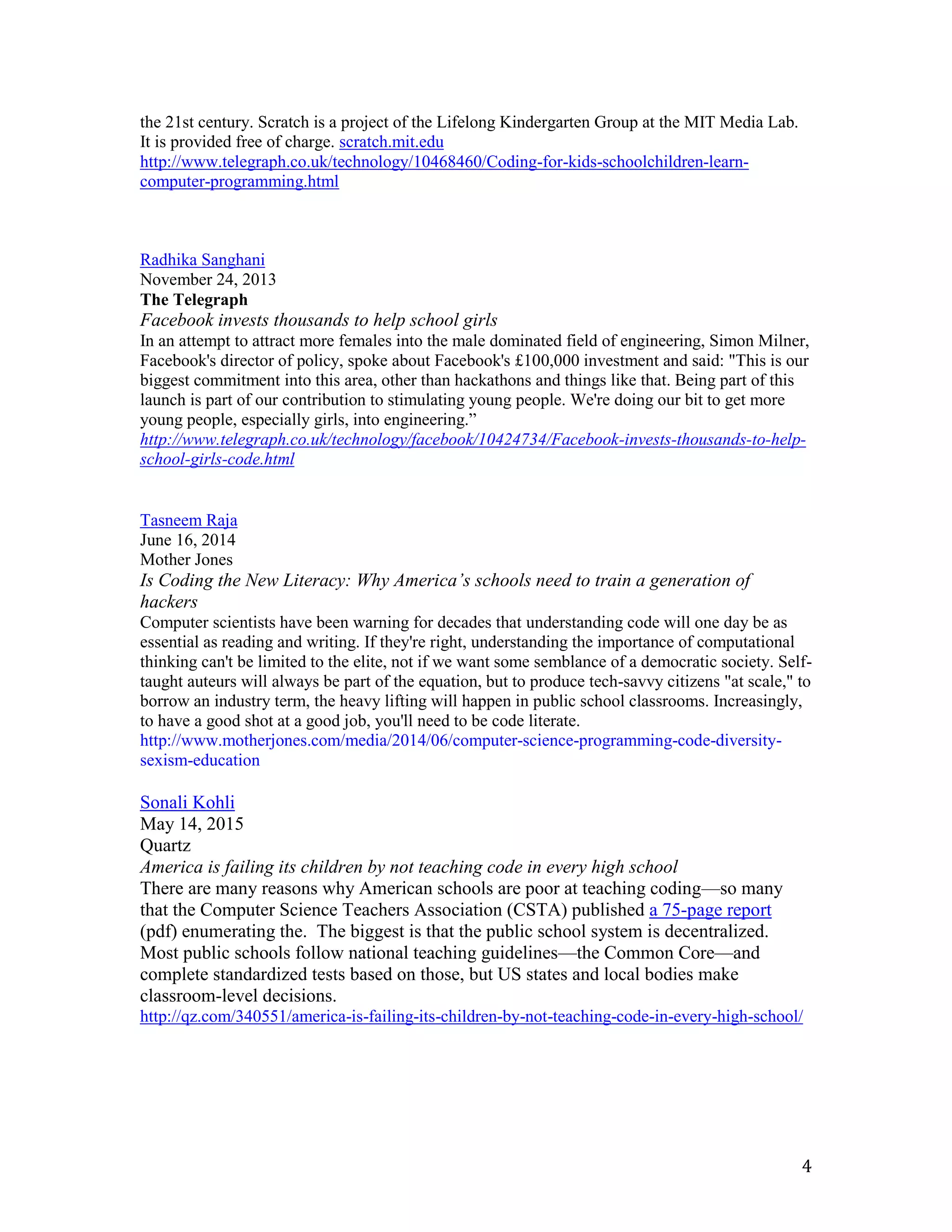The document discusses the growing movement to teach computer programming and coding to children in schools. It provides examples of initiatives and programs in different places that aim to introduce coding in primary and secondary schools, as well as arguments for why coding skills are as important as reading and writing in the 21st century. Organizations discussed include Code.org, Code Club, Young Rewired State and Facebook programs to get more girls interested in engineering. The importance of teaching coding is framed as a way to develop critical thinking skills and prepare children for future jobs that may involve programming.
![1
Articles supporting children and coding
Angela Woolsey
Fairfax County Times
August 26, 2016
LEGOs symposium trains teachers in robotics and other STEM skills
Aimed specifically at educators and schools, LEGO Education provides products and curriculum designed
to teach students science, technology, engineering and math (STEM) skills.
“The LEGO group’s mission is really to inspire and help develop the builders of tomorrow,” LEGO
Education director of marketing Ken Yanhs said. “We’ve been doing in-classroom demonstrations,
community demonstrations [and] workshops for people to understand that it’s not just a toy. It’s actually an
incredibly powerful learning tool.”
http://www.fairfaxtimes.com/articles/legos-symposium-trains-teachers-in-robotics-and-
other-stem-skills/article_c430f638-6bd8-11e6-8ee2-2396cab0335a.html
Victor Winter
vwinter@unomaha.edu
Wiki Science 2014
Bricklayer: An Authentic Introduction to the Functional Programming Language SML
vwinter@unomaha.edu
Bricklayer is an API, written in SML, that provides a set of abstractions for creating LEGO® artifacts
which can be viewed using LEGO Digital Designer. The goal of Bricklayer is to create a problem space
(i.e., a set of LEGO artifacts) that is accessible and engaging to programmers (especially novice
programmers) while providing an authentic introduction to the functional programming language SML.
http://wiki.science.ru.nl/tfpie/images/5/5e/Tfpie2014_submission_1.pdf
Issie Lapowsky
WIRED
March 20, 2015
So, Arkansas Is Leading the Learn to Code Movement
Arkansas may be one of the last states that comes to mind when you think of major hubs of tech
talent. And yet, last month, it became the first to pass a truly comprehensive lawrequiring all
public and charter high schools to offer computer science courses to students, beating better
known tech centers like California and New York to the punch.
http://www.wired.com/2015/03/arkansas-computer-science/
Eric Westervelt
NPR All Tech Considered
February 17, 2014
A Push to Boost Computer Science Learning Even At An Early Age
"Ninety percent of schools just don't even teach it. So if you're a parent and your school doesn't
even offer this class, your kids aren't going to have the preparation they need for the 21st
century," says Hadi Partovi, co-founder of the nonprofit Code.org.
http://www.npr.org/sections/alltechconsidered/2014/02/17/271151462/a-push-to-boost-computer-
science-learning-even-at-an-early-age](https://image.slidesharecdn.com/articlessupportingchildrenandcoding-160831192557/75/Articles-supporting-children-and-coding-1-2048.jpg)


